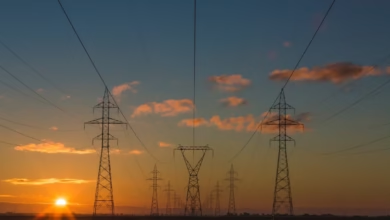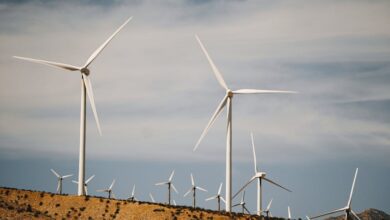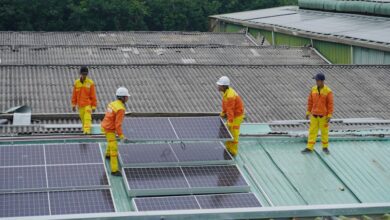Navigating the Future of Energy in Transportation: From Fossil Fuels to Electric Vehicles and Biofuels in the Energy Transition

The transportation sector is at a pivotal crossroads, where the challenges of climate change and the quest for energy security drive the need for innovative solutions. As global energy trends shift towards sustainability, understanding the interplay between various fuel sources becomes crucial. This article delves into the evolving energy landscape, examining how fossil fuels, renewable energy, and emerging technologies are shaping the future of transportation. From electric vehicles (EVs) powered by solar and wind energy to biofuels derived from bioenergy, we explore the role of these alternatives in the energy transition. Additionally, we will discuss innovations in energy storage and smart grids that enhance energy efficiency and support the integration of distributed energy resources. By analyzing the complexities of energy markets and energy policy, we aim to provide a comprehensive overview of how these developments are paving the way for a greener, more sustainable transportation system. Join us as we navigate through the multifaceted world of energy in transportation, highlighting the importance of energy investments and research and development (R&D) in combating climate change and fostering a resilient energy future.
- 1. Understanding the Energy Landscape: From Fossil Fuels to Renewable Energy in Transportation
- 2. The Role of Electric Vehicles and Biofuels in the Energy Transition
- 3. Innovations in Energy Storage and Smart Grids: Enhancing Energy Efficiency in Transportation
1. Understanding the Energy Landscape: From Fossil Fuels to Renewable Energy in Transportation
The energy landscape in transportation is undergoing a significant transformation, as the world shifts from traditional fossil fuels towards a more diverse mix of renewable energy sources. This transition is largely driven by the urgent need to address climate change and enhance energy security. Fossil fuels have dominated the transportation sector for over a century, providing a reliable source of energy for vehicles, ships, and aircraft. However, the environmental impact of fossil fuel consumption has led to a growing focus on energy efficiency and green energy alternatives.
Renewable energy sources, such as solar power, wind energy, and hydropower, are becoming increasingly popular in the transportation sector. Electric vehicles (EVs) powered by renewable energy are driving the energy transition, showcasing innovations in energy storage and energy economics. The integration of smart grids facilitates the management of energy supply and demand, ensuring that energy is used efficiently and sustainably.
In addition to electric vehicles, bioenergy plays a crucial role in diversifying fuel sources for transportation. Biofuels derived from organic materials can reduce greenhouse gas emissions and offer a renewable alternative to fossil fuels. Moreover, hydrogen energy is emerging as a promising solution, particularly for heavy-duty transportation and long-distance travel.
Global energy trends indicate a shift towards decentralized and distributed energy systems, where local energy production and consumption can enhance energy security and reduce dependence on energy imports. Energy markets are adapting to these changes, prompting investments in energy R&D to support new technologies, such as carbon capture and thermal energy systems.
As energy policies evolve to support this transition, stakeholders must consider the implications of offshore energy development and the role of nuclear energy in providing a stable and low-carbon energy supply. The future of transportation will undoubtedly rely on a combination of various energy sources, including renewables, while addressing the challenges of energy storage and the need for efficient energy transportation systems.
This dynamic energy landscape presents opportunities for innovation and investment as we move towards a sustainable transportation future that not only reduces emissions but also improves energy efficiency and enhances the resilience of energy markets.
2. The Role of Electric Vehicles and Biofuels in the Energy Transition
The energy transition is a critical response to climate change and the pressing need for sustainable energy sources. Within this transition, electric vehicles (EVs) and biofuels play pivotal roles in reshaping the transportation sector, which is traditionally reliant on fossil fuels. As global energy trends shift towards renewable energy sources, the adoption of EVs is accelerating, driven by advancements in energy storage technologies and increasing energy efficiency.
Electric vehicles significantly reduce greenhouse gas emissions, especially when charged using green energy sources such as solar power and wind energy. By integrating smart grids, EVs can not only draw power from the grid but also contribute to it during peak energy demand times, enhancing energy security and efficiency. This bi-directional energy flow is increasingly important as energy markets evolve and the need for distributed energy systems grows.
Biofuels, derived from organic materials, also offer a sustainable alternative for transportation. They can be produced from agricultural waste or dedicated energy crops, providing a means to utilize bioenergy effectively. The integration of biofuels into the energy mix supports energy diversification, helping to mitigate the reliance on fossil fuels. Furthermore, biofuels can be produced in various forms, such as biodiesel and ethanol, catering to different types of vehicles and infrastructure.
The synergy between electric vehicles and biofuels can drive energy innovations that enhance energy efficiency and reduce carbon footprints. As energy policies increasingly favor these alternatives, investments in both sectors are likely to rise. This includes funding for energy R&D aimed at improving biofuel production methods and enhancing battery technologies for EVs.
As the world moves toward a more sustainable energy future, electric vehicles and biofuels will play a crucial role in achieving energy transition goals. Their ability to reduce dependence on fossil fuels, enhance energy security, and support climate change mitigation efforts positions them as vital components in the global shift toward cleaner, more resilient energy systems.
References:
– International Energy Agency. (2023). Global EV Outlook 2023. Retrieved from https://www.iea.org/reports/global-ev-outlook-2023
– U.S. Department of Energy. (2023). Bioenergy Basics. Retrieved from https://www.energy.gov/eere/bioenergy/bioenergy-basics
– World Resources Institute. (2023). The Role of Renewable Energy in the Energy Transition. Retrieved from https://www.wri.org/research/renewable-energy-role-energy-transition
3. Innovations in Energy Storage and Smart Grids: Enhancing Energy Efficiency in Transportation
The transportation sector is undergoing a transformative shift, largely driven by innovations in energy storage and smart grid technology. These advancements are pivotal in enhancing energy efficiency and promoting the use of renewable energy sources. As global energy trends shift towards sustainability, the integration of smart grids facilitates the effective management of energy resources, enabling the seamless distribution of green energy generated from solar power, wind energy, and hydropower.
One significant innovation in energy storage is the development of advanced battery technologies, particularly for electric vehicles (EVs). Improved energy storage solutions not only increase the range of EVs but also enhance the overall efficiency of energy transportation. By utilizing high-capacity batteries, vehicles can store excess energy generated during peak renewable production times, such as sunny or windy days. This capability allows for a more stable and reliable energy supply, reducing reliance on fossil fuels and contributing to energy security.
Smart grids play a crucial role in optimizing energy distribution and consumption. By incorporating real-time data, smart grids can dynamically balance energy loads and manage energy imports and exports more efficiently. This technology enables the integration of distributed energy resources, such as bioenergy and thermal energy, into the broader energy market. As a result, smart grids not only support the energy transition but also facilitate energy investments in emerging technologies that promote sustainability.
Moreover, the rise of hydrogen energy as a viable fuel source for transportation is another exciting development. Innovations in energy R&D have led to more efficient hydrogen production methods, including electrolysis powered by renewable energy. This transition not only reduces carbon emissions but also aligns with energy policies aimed at combating climate change. Coupled with carbon capture technologies, hydrogen energy can significantly lower the carbon footprint of transportation systems.
In summary, the interplay between energy storage innovations and smart grid technology is essential for advancing energy efficiency in transportation. By fostering the use of renewable energy and reducing dependence on fossil fuels, these innovations pave the way for a sustainable and resilient energy future, ensuring that the transportation sector remains adaptable to global energy trends and climate challenges.
References:
– International Energy Agency. (2022). Energy Storage. Retrieved from [IEA](https://www.iea.org/topics/energy-storage)
– U.S. Department of Energy. (2021). Smart Grid. Retrieved from [DOE](https://www.energy.gov/oe/activities/technology-development/grid-modernization-and-smart-grid)
– World Economic Forum. (2023). The Future of Hydrogen. Retrieved from [WEF](https://www.weforum.org/reports/the-future-of-hydrogen)
In conclusion, the energy landscape of transportation is undergoing a significant transformation as we shift from traditional fossil fuels to more sustainable and renewable energy sources. Electric vehicles (EVs) and biofuels play a crucial role in this energy transition, offering innovative solutions that not only enhance energy efficiency but also contribute to reducing carbon emissions. As we navigate global energy trends and adapt our energy policies, advancements in energy storage technologies and smart grids will be pivotal in maximizing the potential of green energy options, including solar power, wind energy, and hydropower.
Moreover, the integration of distributed energy systems and nuclear energy into our transportation infrastructure promises to bolster energy security while minimizing reliance on energy imports. The continued investment in energy R&D will further drive innovations in thermal energy and hydrogen energy, paving the way for a more resilient and sustainable future.
As we confront the challenges posed by climate change, it is imperative to embrace these energy innovations and adapt our energy markets accordingly. By prioritizing a diversified approach to energy transportation, we can ensure a cleaner, more efficient, and economically viable energy future that benefits both current and future generations. The time for action is now, and with the right strategies and investments, we can create a robust energy ecosystem that supports a sustainable world.





